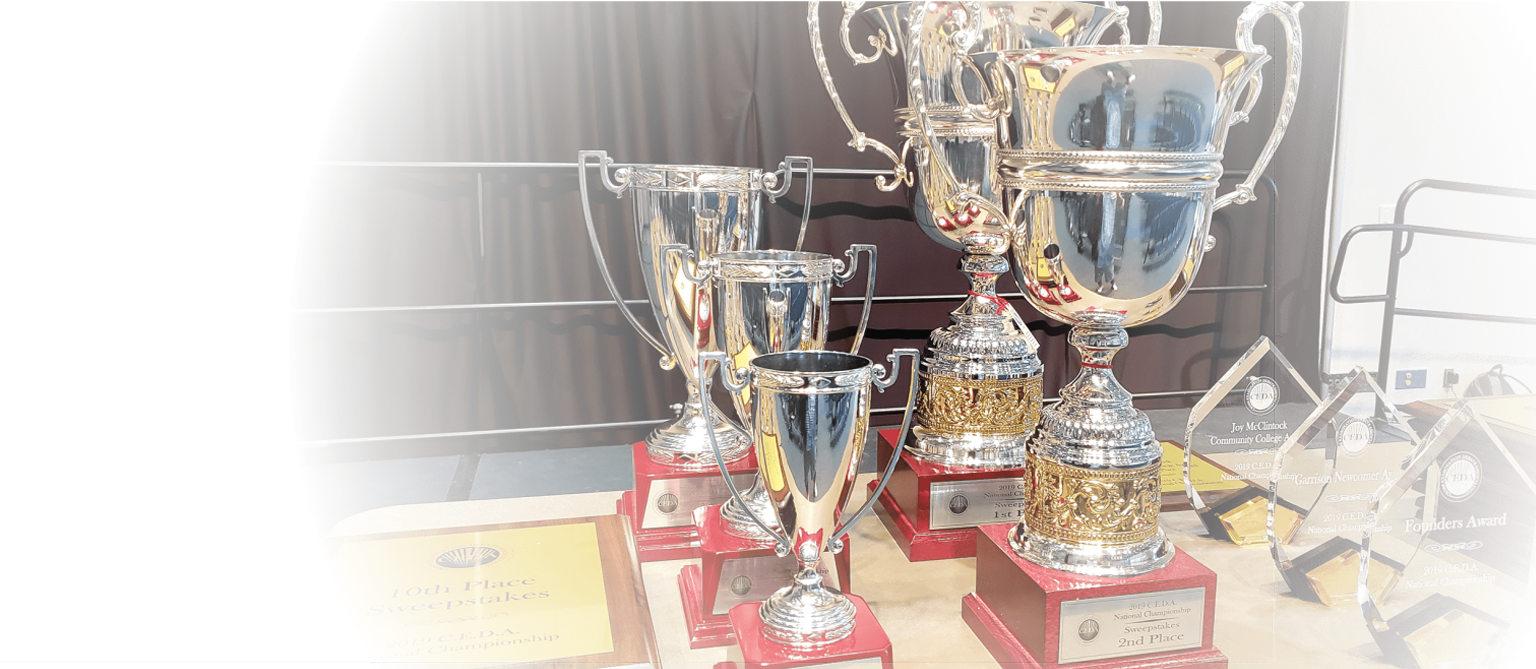From April 8 to April 11, The New School’s Debate Team competed in the Cross Examination Debate Association (CEDA) National Tournament. For the tight-knit team, it is a bittersweet end to their season.
The 2023 CEDA National Tournament was held at the University of Houston, in Houston, Texas. TNS Debate Team competed against 31 other schools from across the country. This year’s debate topic was whether or not the United States vests legal rights and/or duties in artificial intelligence, nature, and/or nonhuman animal species. Though they did not advance from the preliminary rounds into the elimination rounds, the pairs collectively won nine debates: three by Katrina Butler & Noor Lima Boudakian, two by Avantika Chaturvedi & Lolo Kaase, two by Jaydan Cardenas & Adrianna Oquendo, one by Isabella Gallo & Rama Lapidus, and one by Michael Kpade & Nathan Jones.
The New School Debate Team was founded in 2003 by a first-year at Eugene Lang College of Liberal Arts, who was seeking to further build a community at The New School. Today, the team is currently ranked 27th in the nation for college competitions. This puts TNS Debate in front of Dartmouth, USC, and NYU. Ten students participated this season, led by coach Keenan and graduate coach Jackson Booth. New School’s website describes the student group as something that “engages students in the full range of intellectual and policy arguments on selected issues of current public interest. It brings New School students as ambassadors to universities and other venues in the city, the country, and the world.”
In the CEDA Tournament, all levels including Novice, Junior Varsity, and Open team members were eligible to compete. Novice refers to first-year competitors, Junior Varsity to competitors with one or more years of experience, and Open to two or more years of experience.
“The Cross Examination Debate Association National Championship is really about our sense of community as college debaters,” The New School’s Debate Team coach Vik Keenan said. Keenan and other team members noted that CEDA was colloquially referred to as “The People’s Tournament.” Their CEDA victories, however, are not the team’s only triumph.
A week prior to CEDA, JV team members Kaase and Chaturvedi participated in the National Debate Tournament (NDT) in Washington D.C. NDT, a prestigious competition, is the only debate tournament during the academic year that requires qualification to participate in. Against 44 other competing schools, including Dartmouth, Georgetown, and Harvard, The New School was able to win two debates and four ballot votes.
Lima Boudakian, a fourth-year at Lang and Open team member, believes that The New School has remained driven despite its lack of resources. “We always joke that The New School’s football team is really our debate team,” Lima Boudakian said.
In comparison to the long-standing tradition of debate at other competing schools, The New School’s team is relatively new. Specifically in regard to back-files, or compiled lists of research and evidence to support a commonly used argument that teams keep. Lima Boudakian mentioned the inherent competitive advantage other teams hold with a higher number of coaches, more experienced debaters, and decades of backfiles.
Fourth-years Lima Boudakian and Butler, who participated in their final debate season before graduation, made an effort to solve this issue. During their four years on the team, the pair of friends and debate partners began building their own backfiles for future members to use.
“We’ve also been kind of able to mentor other students and have them be more incentivized to stay on the team,” Lima Boudakian said. “We didn’t have those people to look up to, but now we get to be that for other people. And that’s really, really special.”
For novice debaters or those who are interested in joining, the process can seem complex. At the beginning of an academic year, a topic is assigned by the American Debate Association (ADA). The ADA then compiles a packet of sample arguments for the topic, detailing a few “affirmative” arguments and “negative” arguments. When teams argue “affirmative,” it is in favor of the topic. When arguing “negative,” it is against, often proposing a counterplan. The title of the competition, Cross Examination, refers to the practice of debaters arguing either side of the topic or a “switch-side debate.”
The research provided in the packet is often used by first-year debaters to encourage participation regardless of their experience level. However, TNS Debate Team’s arguments are almost exclusively supported by their own independent research sourced from academic journals, policy journals, and articles.
After disclosing the basis of their arguments to each other, the debate officially begins and each team argues their position. Alternating between the “affirmative” and the “negative” side, the teams perform Constructive Speeches, where the foundation of an argument is laid. This is followed by Rebuttals and Cross Examinations. In the case that a series of Preliminary rounds are won, the team then advances to Elimination rounds.
In regards to their final season on the team, Butler voiced similar sentiments as Lima Boudakian. “I really owe the debate team, all my teammates and coaches past and present,” Butler said. “I’ve always been able to count on my team for love and all the help they could give.”







